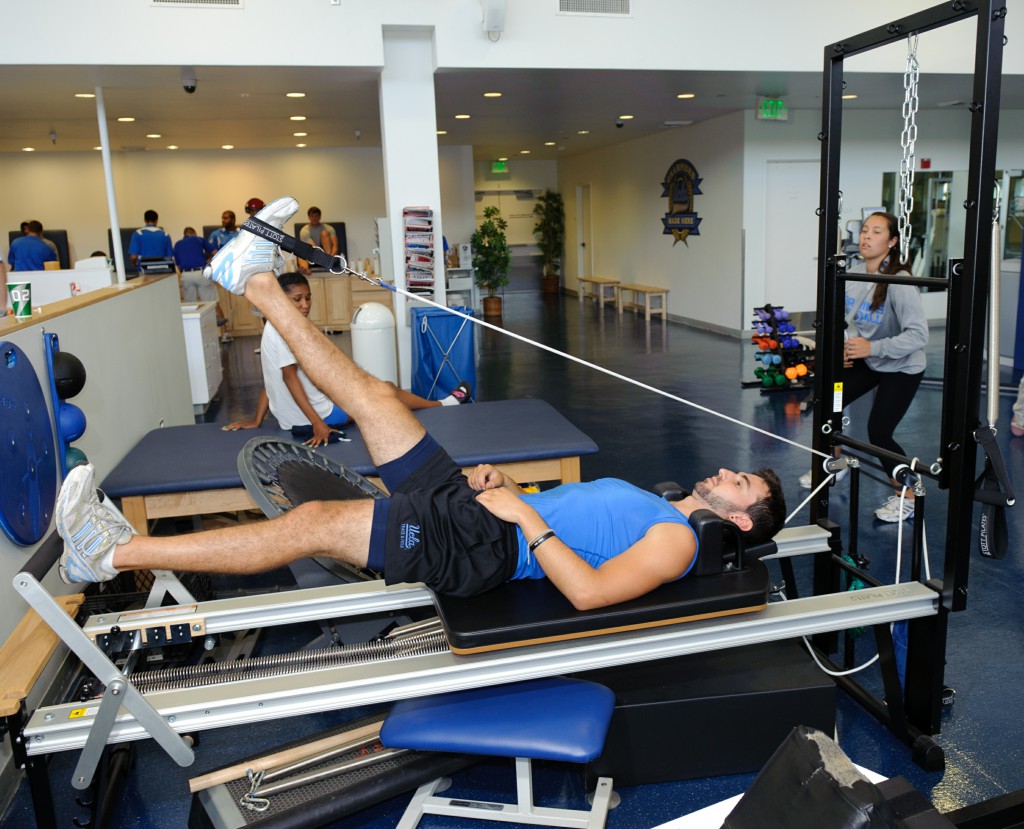Wellness Wednesday: Injury Survival Tips to Make it Through the Aches, Pains and Worse

Wellness Wednesday: Injury Survival Tips (Physical and Mental) to Make it Through the Aches, Pains and Worse
A swimmer’s worst nightmare is being told that they are too hurt to swim. That an injury requires rest or rehabilitation in order to prevent it from creating further damage. This scenario means having to miss or modify practices. The worst case scenario is when an injury requires surgical intervention to fix it. In this case, the swimmer might be out for months while relearning how to properly use their muscles. As someone who has experienced the worst case scenario twice in the past two years, the mental and physical struggle of coming back from an injury is no small feat. Here are some pointers that helped me through my journey.
Progress is Not Linear
It is easy to get caught up in the quest to get medical clearance to return to the pool. Sometimes progress toward that goal is more clear than not, especially at the beginning of recovery. In the times that progress is not as evident as it once was, it is hard not to become frustrated with oneself. The best piece of advice I received in these moments of increased frustration was to look at progress as a month by month process.
When I would become upset at having difficulty performing a new exercise, I would take a moment to stop and ask myself where I was one to two months prior. After my hip surgery, I struggled for weeks to be able to do a simple glute bridge. I would leave physical therapy furious and terrified. If I could not do this one exercise, what did this mean for my comeback in the pool? It was then I would remind myself that two months before, I was still learning how to walk again. Something as simple as adjusting the lens with which the situation is viewed can make a world of difference.
Seek Out a Mental Health Professional
Getting help from a counselor or therapist is not just life changing in this process, it can be life saving. It is so easy to fall into the despair and sadness of having to watch everything from the sidelines. Having to watch your friends and teammates do the one thing you want to do, but are not allowed to do, day in and day out, takes a toll. Many athletes, not just swimmers, tie their identity heavily to their sport. When their sport is taken away, it is devastating. A mental health professional can help you find outlets in life that bring you joy outside of swimming. Add more slices to your pie. On top of that, having someone to vent to and having a third party as a voice of reason does wonders. Above all, it is just as important to look after our mental health as it is our physical health in this process.
Physical Therapy is a Form of Training
While it may feel like you are falling hopelessly behind your teammates as you sit on the pool deck, it is not always the case. It may be true that traditional training in the pool as we know it is not taking place, but it does not mean you are doing nothing. The exercises you do in and out of physical therapy are a form of training. You are still getting stronger, it is just a different kind of strength. Your muscles are still firing. You are still getting better everyday, little by little.
Avoid Doing Too Much Too Soon
It is not worth risking all your progress just to get “ahead” of your timeline. The timeline given to you by your doctor is there for a reason. Trust the process.
Your Recovery is Your Own
Do not compare yourself and your recovery to the rehab of others. They are not you. Everyone’s road to medical clearance looks different, and more importantly, no two injuries are exactly the same. It is not worth stressing out over what the person next to you is doing or how their recovery is going. Stay in your own lane. Everything is going to be just fine.




Helpful advice!